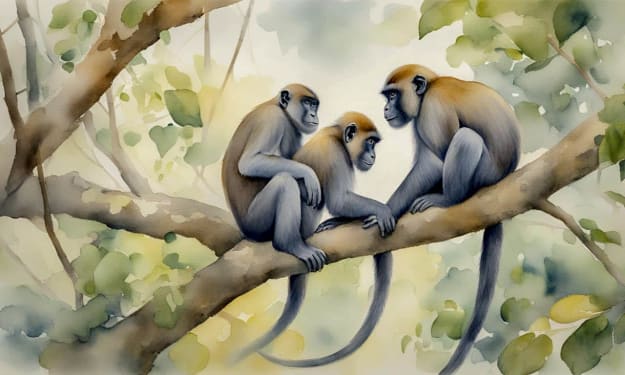Exploring Human Variation and Adaptation:
The Diversity of the Human Experience

Human variation and adaptation are fascinating aspects of the human experience, reflecting the rich tapestry of genetic, environmental, and cultural influences that shape our species' diversity. In this exploration, we delve into the complexities of human variation and adaptation, uncovering the factors that contribute to our unique traits and abilities.
Understanding Human Variation: The Mosaic of Genetic Diversity
Human variation refers to the range of physical, genetic, and cultural differences observed among individuals and populations worldwide. From skin color and facial features to blood type and susceptibility to diseases, humans exhibit a remarkable diversity of traits that reflect our evolutionary history and geographic ancestry. This variation is the result of genetic mutations, gene flow, genetic drift, and natural selection acting over millennia to shape the genetic makeup of different populations.
Factors Influencing Human Variation
Several factors contribute to human variation, including:
Genetic Diversity: Genetic variation arises from differences in DNA sequences among individuals and populations. Mutations, genetic recombination, and gene flow contribute to the generation and maintenance of genetic diversity within and between populations.
Environmental Factors: Environmental influences, such as climate, diet, and lifestyle, can also shape human variation. Adaptations to local environmental conditions, such as skin pigmentation and metabolic efficiency, reflect the ways in which human populations have evolved to thrive in diverse habitats.
Cultural Practices: Cultural practices and traditions, such as diet, clothing, and social customs, can influence patterns of human variation. Cultural factors may affect not only physical traits but also behaviors, beliefs, and social norms that contribute to the diversity of human societies.
Adaptation to Environmental Pressures
Human adaptation refers to the process by which individuals and populations evolve traits and behaviors that enhance their survival and reproductive success in specific environments. Adaptations may be physiological, such as increased sweat production in response to heat stress, or behavioral, such as migration patterns or dietary preferences. Over time, adaptations become ingrained in the genetic makeup of populations, allowing them to thrive in their respective habitats.
Examples of Human Adaptations
Skin Pigmentation: Human populations living closer to the equator tend to have darker skin pigmentation, which provides protection against harmful ultraviolet (UV) radiation from the sun. In contrast, populations living at higher latitudes have lighter skin pigmentation, allowing for greater synthesis of vitamin D in regions with less sunlight.
Lactase Persistence: Lactase persistence, the ability to digest lactose, the sugar found in milk, into adulthood, is a genetic adaptation that has evolved independently in populations with a history of dairy farming. This adaptation allows individuals to derive nutrition from milk and dairy products, contributing to dietary diversity and nutritional security.
High-Altitude Adaptations: Populations living at high altitudes, such as the Tibetan plateau and the Andes mountains, have evolved physiological adaptations to cope with reduced oxygen levels. These adaptations include increased lung capacity, higher red blood cell counts, and alterations in hemoglobin structure to facilitate oxygen transport in the blood.
Implications of Human Variation and Adaptation
Understanding human variation and adaptation has important implications for various fields, including medicine, public health, and anthropology. By recognizing the diversity of human traits and the factors that contribute to their distribution, researchers can develop more effective strategies for disease prevention, personalized medicine, and cultural competence in healthcare delivery. Moreover, studying human adaptation provides insights into the ways in which our species has thrived in diverse environments and overcome environmental challenges throughout our evolutionary history.
Challenges and Controversies in Human Variation and Adaptation
Despite the wealth of knowledge accumulated in the study of human variation and adaptation, the field faces challenges and controversies, including debates over the nature versus nurture debate and the implications of genetic research for concepts such as race and ethnicity. Moreover, ethical considerations related to genetic testing, privacy, and informed consent are paramount in the study of human genetics and adaptation.
Conclusion: Celebrating the Diversity of the Human Experience
In conclusion, human variation and adaptation are central to the rich tapestry of the human experience, reflecting the intricate interplay of genetic, environmental, and cultural influences that shape our species' diversity. By embracing the complexity of human traits and the factors that contribute to their distribution, we gain a deeper appreciation for the resilience, ingenuity, and adaptability of our species. As we continue to unravel the mysteries of human variation and adaptation, let us celebrate the diversity of the human experience and work towards a more inclusive, equitable, and compassionate world for all.
About the Creator
Mohamed Ali
Mohamed Ali is a passionate writer and researcher with a keen interest in exploring the complexities of human behavior and society through the lens of sociology. With a background in sociology and psychology.






Comments
There are no comments for this story
Be the first to respond and start the conversation.